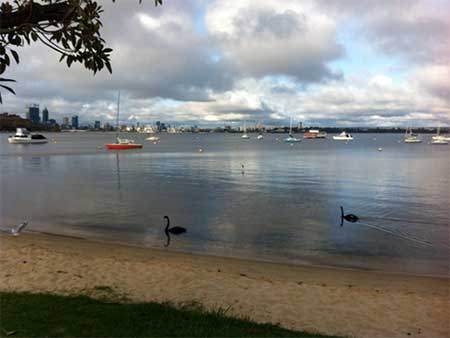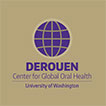I have recently returned from six months studying abroad in Perth, Western Australia. While I was there, I had the opportunity of getting to know my family in Australia, as well as roommates from Denmark and Sweden. Living among and getting to know different people and cultures opened my eyes to new perspectives the world has to offer and solidified my interest in global health.

One night in Perth, gathered around the dinner table, my Swedish roommate, Hedda, spoke on paid parental leave while my Danish roommate, Line, nodded her head in agreement. “Paid parental leave? What’s that?” I asked. They went on to explain that parents receive fourteen months of paid parental leave upon the birth of their child that can be split among themselves as they please. I was shocked, amazed really. How could America not have something similar? The United States is a high-income country after all. Hedda asked what the United States’ paid parental leave is, “what, four months?” she chuckled at the, in her perspective, small number. I responded explaining that there is no regulated amount of time a parent is allowed paid parental leave. “I think my mom had two or three weeks,” I estimated. Then, we were all shocked.

This conversation has remained with me and has only made me more passionate about global health. I believe the United States should sustainably help low-income countries, as well as learn from peer countries such as Sweden, Denmark, and Australia etc. This idea was brought to my attention in a workshop lead by Stephen Bezruchka, a professor here at the University of Washington. Professor Bezruchka teaches that the United States has focused on comparing its health to past statistics over the years, instead of comparing the country to peer countries in order to identify areas needing improvement. The United States has plenty to learn from other countries, and through global health work and understanding, the United States will also benefit. This is something not many people understand, I certainly did not until my education in the Public Health major.
Having the opportunity to intern at the Timothy A. DeRouen Center this year has taught me valuable skills and exposed me to projects all around the world, from Peru to Thailand. As the Center’s strategic planning intern, I have knowledge around all of our projects and set up timelines to see them through. Interacting with faculty abroad to complete a grant application has shown me the collaboration global health work takes in the real world. I love global health because of the differing perspectives and situations of each country and I love that the DeRouen Center focuses on sustainability throughout the projects we work on. I am thankful to be a part of an inclusive and dedicated group such as the UW DeRouen Center.
Marina Martinez is an undergraduate student at the University of Washington studying Public Health.
